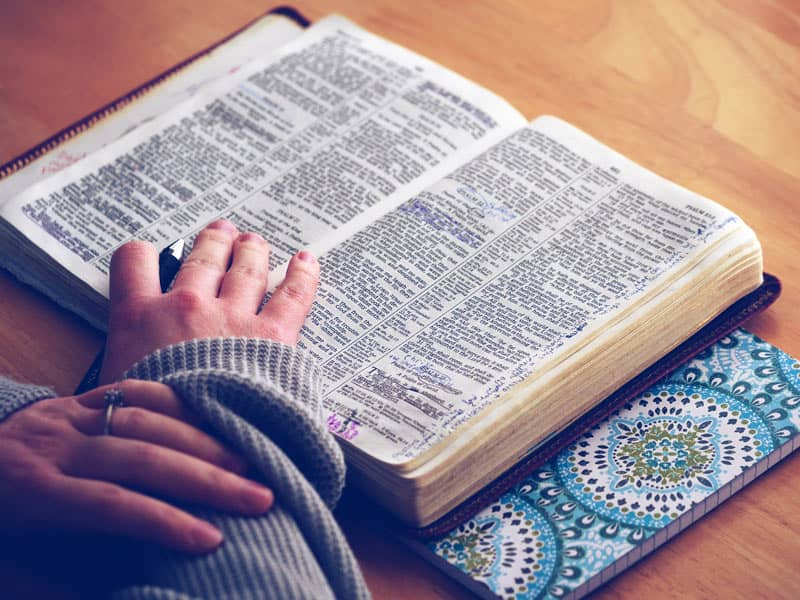
Beliefnet blogger Gayle Trotter speaks with Jay Milbrandt, author of Go and Do: Daring to Change the World One Story at a Time . Jay is an attorney and serves as the director of the Global Justice Program and as associate director of the Nootbaar Institute on Law, Religion and Ethics at Pepperdine University School of Law.
You were on the path to be a highly paid and high-powered attorney in private practice. What derailed you?
To be honest, I don’t even know exactly what it was. I remember having this experience in law school where I started questioning myself and questioning what I was doing and what this was all for, what it was leading to. And that challenged me to start getting outside my comfort zone and find out why I had chosen to do something like law. When I saw international issues that were coming up — even local issues — that places where lawyers, people like me, could be involved and make a difference in the lives of people in a way that no one else could, it really stopped me in my tracks and sent me on a different path.
Through your book, are you encouraging people to go out and change the world or change themselves?
I’m encouraging them to go out and change themselves. Although the title is Daring to Change the World, my thesis chapter really is chapter four, which is entitled, “It’s Not About Changing the World.” And I think that we need to start here. We need to say, it’s not about going and trying to create these giant, sweeping changes that we celebrate. We celebrate these giant organizations and foundations that are doing great global things, but we start to feel that that’s the only useful thing to do or that’s the only measure, yardstick, of success for us. And I think if we come to it and approach the world and these issues again, both internationally and locally, if we approach them through the lens of: How can I change myself, how can I be more useful, how can I make myself important and be a part of this — even a small piece of this — problem or the solution of the problem. That’s the way that we can really change ourselves and find that we become different people in the end of it.
How did you find God in a red light district in Thailand full of street kids?
These red light districts are difficult places to see God and it’s very challenging to face and to know these places exist and kids are so vulnerable. But I found kids who were just an incredible joy to be with. And they started to feel like my own kids, and I saw them in the same way that God the Father and Jesus see their kids. Jesus talked about kids all the time. He’s just crazy about them and I was never that interested in working with kids until I ended up there and met these amazing children who were in extraordinary and dire situations. I wanted to be able to do something to help them and help change their course so that if I returned in five or ten years, I wouldn’t see them in these brothels. I found God evident in working in this situation and in the people that he brought like myself, like other friends that I knew who came in and were able to be part of their lives and experience the joy of serving children who had no one else and help change their path so that they wouldn’t end up in that situation of entering the brothels one day.
Aren’t doctors and nurses the only professionals who can help the poorest of the poor in struggling nations?
I have always been jealous of doctors and nurses too because it always seems like they can just show up and help instantly. And that’s not as apparent for a lot of professions, like myself, as a lawyer. I’m not sure how I can show up and be helpful. But I think we have a real, immediate need, no matter who we are. We just need to go and show up and be just present with people. Just be there, and then we can learn once we’re there for awhile. We learn how we can be most useful in these situations and how our professions do matter and how we bring skills to these scenarios that might not have been as apparent as it would for a doctor or a nurse. But this idea of presence is so important, presence with our professions.
You write, “As we seek to rescue those in deep need, it is often we ourselves who equally need to be rescued.” How does it become a “vast mutual rescue,” as you call it?
One of the experiences that I and so many of my peers had going through law school is that we feel alienated from the heroic. We came to our professions because we saw something that ignited us, that sparked the heroic gene inside of us. The reason a lot of us came to law school was we saw a movie about lawyers and thought, “The lawyers are the ones going in and making the right decisions. It’s such a heroic thing to do.” But then we get into our careers and maybe it wasn’t the way we expected it to turn out. We feel alienated. There is some purpose missing. We’ve lost the reason that we wanted to go there. I think our need for heroic purpose, our desire to do something, directly matches someone’s need for safety, for security, for justice. We can find that. We can fulfill this mutual exchange by going and doing. By fulfilling that need for safety in someone else, for seeking justice for them,we find our heroic purpose.


